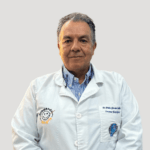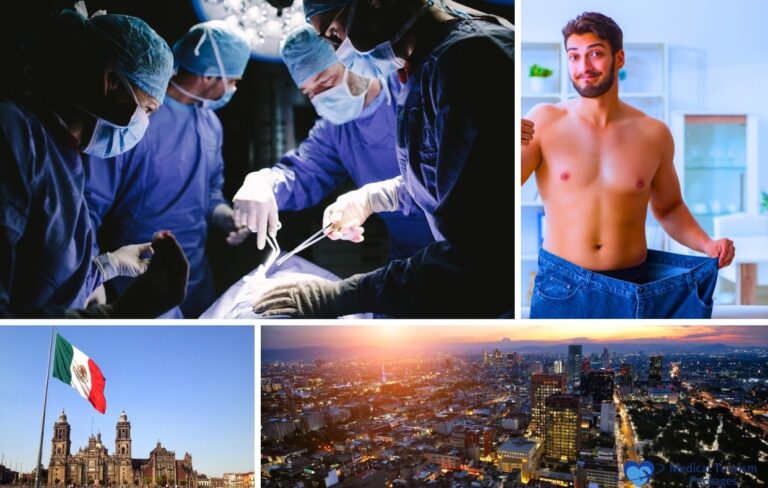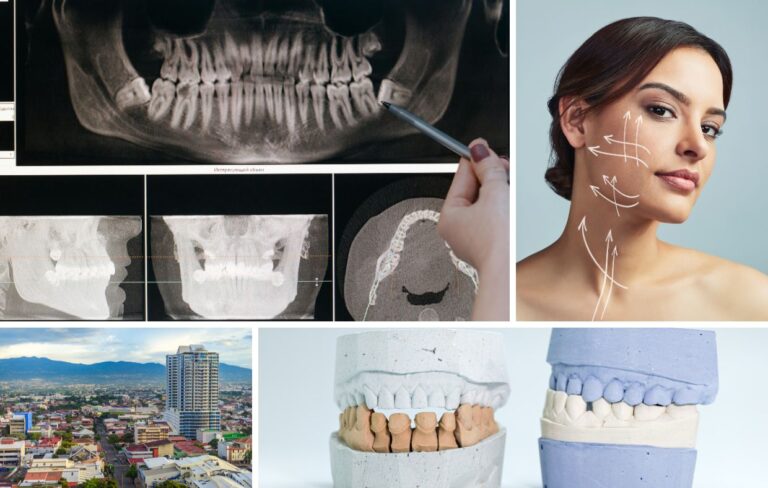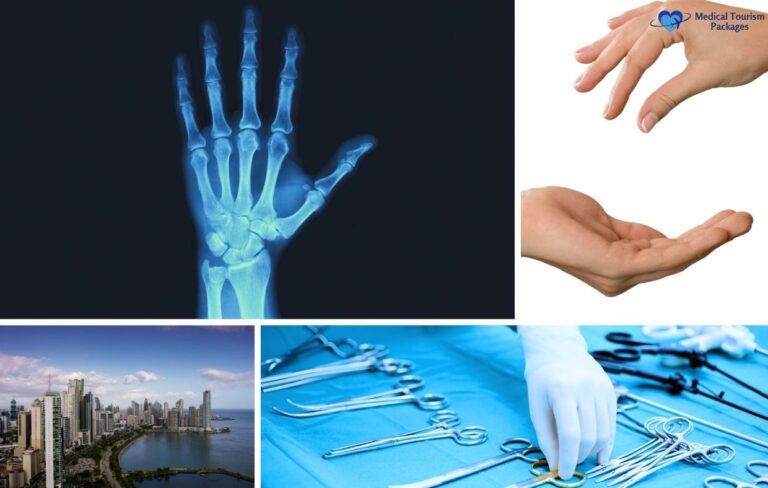Book Appointment Now
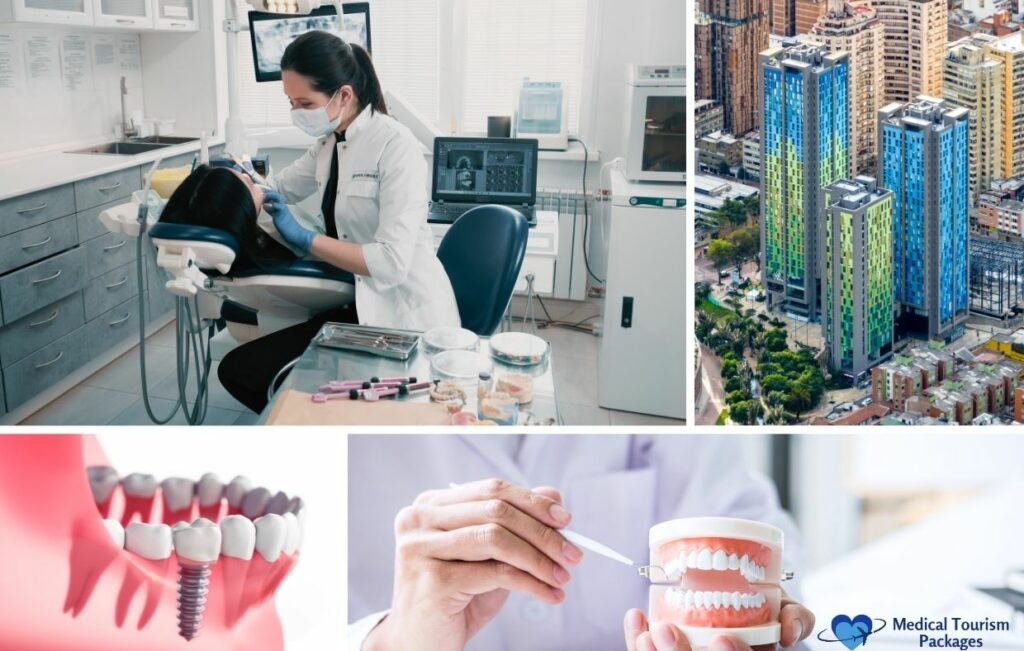
Best Dentists in Colombia: Quality & Affordable Dental Care Guide 2025
The best dentists in Colombia offer world-class dental care at 50-80% lower costs than the US, with board-certified specialists using Straumann and Nobel Biocare implants.
Colombia’s top dentists complete six years of training, including mandatory government service, before private practice. Implants cost $900-$1,600 versus $3,500-$6,500 in the US. All-on-4 runs $6,300-$9,000, saving you $15,000 or more. Clinics in Bogota, Medellin, Cartagena, and Cali hold JCI accreditation and ISO 9001 certification.
Medical Tourism Packages connects you with independent dental professionals across Colombia, each verified for active licensure and board certification. Below, you will find cost comparisons, city guides, dentist profiles, and answers to common questions about Colombian dental tourism.
Who Are the Best Dentists in Colombia?
The best dentists in Colombia are board-certified specialists with five years of university training plus mandatory government service. Top practitioners work in Bogota, Medellin, Cartagena, and Cali. They hold international certifications and use the same implant brands found in US clinics.
The following independent specialists are affiliated partners who consistently deliver exceptional results:
Quick Facts About These Partner Specialists:
- All board-certified dental and surgical professionals (verified)
- Combined experience in general, cosmetic, and maxillofacial procedures
- International training and certifications
- Operating in accredited dental and surgical facilities
- English-speaking or translation available
Affiliated Partner Specialists
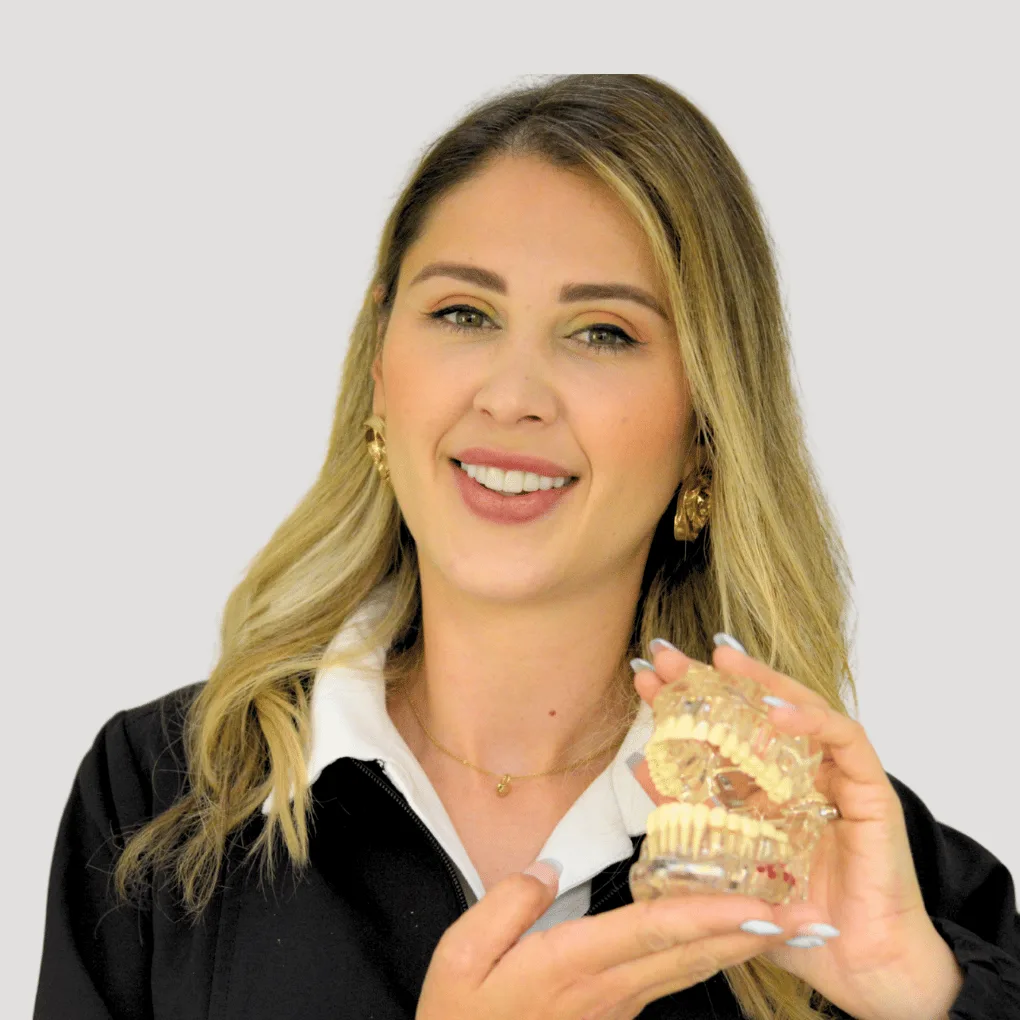
Dr. Maria Gomez
Location: Colombia | Specialty: Dentistry
Board Certified Dental Professional
Specialties:
- General Dentistry
- Cosmetic Dentistry
- Dental Implants
- Smile Makeovers
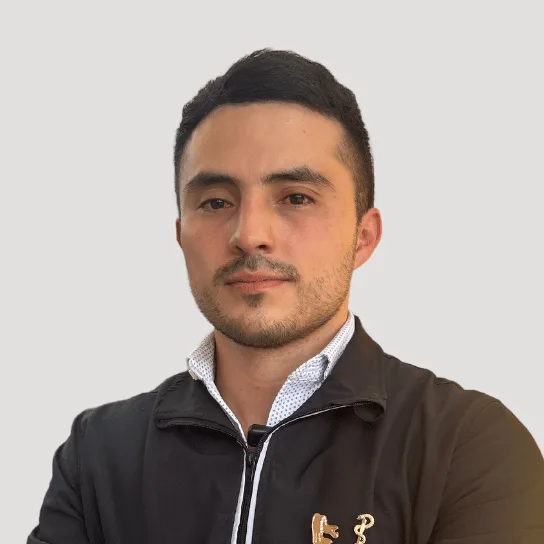
Dr. David Martinez
Location: Colombia | Specialty: Maxillofacial Surgery
Board Certified Maxillofacial Specialist
Specialties:
- Orthognathic Surgery
- Facial Reconstruction
- TMJ Disorders
- Oral Pathology

Dr. Veronica Barquero
Location: Colombia | Specialty: Maxillofacial Surgery
Board Certified Maxillofacial Specialist
Specialties:
- Jaw Surgery
- Dental Implants
- Facial Trauma
- Corrective Jaw Surgery
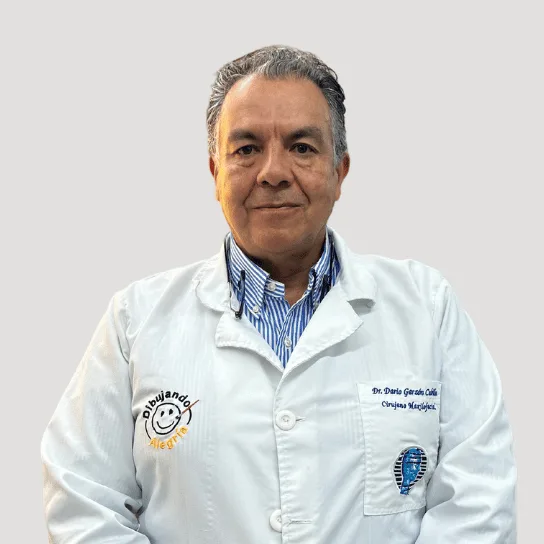
Dr. Dario Garzon
Location: Colombia | Experience: 5,000+ patients
Board Certified Oral & Maxillofacial
Specialties:
- Oral Surgery
- Maxillofacial Surgery
- Facial Reconstruction
- Complex Oral Procedures
What Credentials Should Colombian Dentists Have?
Colombian dentists should have a five-year university degree from one of 21 accredited dental schools. They must complete one year of mandatory government service before private practice. Request their tarjeta profesional to verify their license. Check for specialty training in implantology, prosthodontics, or cosmetic dentistry.
Can You Trust Colombian Dentists?
Yes, you can trust Colombian dentists who are properly credentialed and work in accredited facilities. Colombia requires more clinical training than many countries. Every licensed dentist completes six years of combined education and hands-on service. Clinical studies for these procedures typically show high success rates matching global standards.
How Are Colombian Dentists Trained?
Colombian dentists complete five years of university education at one of 21 accredited dental schools. The Ministry of Health oversees all programs. After graduation, dentists must serve one year in public hospitals or rural clinics. This Servicio Social Obligatorio ensures every practitioner gains real clinical experience before private practice.
What Safety Standards Do Colombian Clinics Follow?
Colombian clinics must maintain habilitacion certification under Resolution 3100. This covers staff qualifications, infrastructure, equipment, and clinical processes. Top clinics also hold ISO 9001 certification or Joint Commission International accreditation. Only nine Colombian institutions have JCI accreditation, making it a meaningful quality marker.
INVIMA, Colombia’s FDA equivalent, approves all dental materials and devices. Clinics use the same implant systems found in US practices, including Straumann, Nobel Biocare, and BioHorizons.
What Are the Success Rates for Colombian Dental Work?
Clinical studies for dental implants in Colombia typically show high success rates matching international standards. Published research shows most patients achieve good healing outcomes. Some patients experience minor complications like temporary swelling. These issues typically resolve within 30 days with proper care.
How Much Does Dental Work Cost in Colombia?
Dental work in Colombia costs 50-80% less than identical treatments in the United States. A single implant runs $900-$1,600 versus $3,500-$6,500 at home. These savings reflect lower operational costs and favorable exchange rates, not reduced quality.
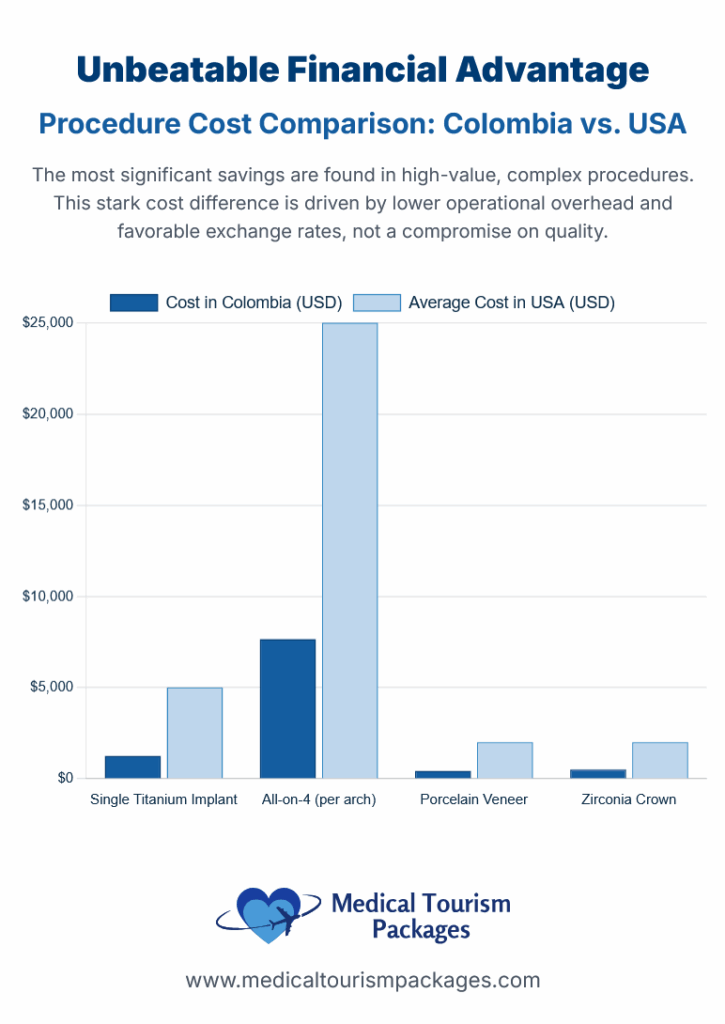
What Does a Dental Implant Cost in Colombia?
A dental implant in Colombia costs $900 to $1,600, including the fixture, abutment, and crown. The same procedure costs $3,500 to $6,500 in the United States. That represents savings of 60-86%. Leading clinics use global brands like Straumann and Nobel Biocare.
What Does All-on-4 Cost in Colombia?
All-on-4 full-arch restoration costs $6,300 to $9,000 in Colombia. In the United States, the same procedure runs $20,000 to $30,000. You save 55-79% while receiving the same materials and techniques. Zirconia bridges cost $10,300 to $11,000, still far below US prices.
What Do Porcelain Veneers Cost in Colombia?
Porcelain veneers cost $350 to $500 per tooth in Colombia. US dentists charge $1,500 to $2,500 per tooth. A full smile makeover with 20 veneers costs $8,000 to $10,000 in Colombia versus $40,000 or more at home. Clinics use premium materials like Ivoclar E.max.
| Procedure | Colombia (USD) | USA (USD) | Savings |
|---|---|---|---|
| Single Dental Implant | $900-$1,600 | $3,500-$6,500 | 60-86% |
| All-on-4 (Acrylic) | $6,300-$9,000 | $20,000-$30,000 | 55-79% |
| All-on-4 (Zirconia) | $10,300-$11,000 | $25,000-$40,000 | 60-73% |
| Porcelain Veneer | $350-$500 | $1,500-$2,500 | 73-86% |
| Zirconia Crown | $400-$600 | $1,500-$2,500 | 60-84% |
| Root Canal | $190-$400 | $800-$1,500 | 50-87% |
| Bone Graft | $230/gram | $500-$1,200 | 54-81% |
| Teeth Whitening | $150-$300 | $500-$1,000 | 60-80% |
What Hidden Costs Should You Expect?
You should budget for diagnostics, potential add-on procedures, and travel expenses beyond the base treatment cost.
Diagnostics: Panoramic X-rays cost $15. CT scans run $70. Consultations are often free.
Additional Procedures: Extractions cost $90-$225 each. Bone grafts run $230 per gram. Sinus lifts cost $405-$810. IV sedation adds $470.
Travel: Round-trip flights run $300-$800. Hotels cost $40-$100 per night. Daily expenses average $20-$30.
Even with all costs included, total expenses typically remain 40-70% below US procedure costs alone.
Where Should You Get Dental Work in Colombia?
You should choose your city based on your procedure type, budget, and travel preferences. Bogota offers the most specialists for complex cases. Medellin excels at cosmetic work with advanced technology. Cartagena combines treatment with Caribbean vacation. Cali provides the lowest prices.
| City | Best For | Climate | Cost Level |
|---|---|---|---|
| Bogota | Complex cases, specialists | Cool (8,660 ft) | Moderate-High |
| Medellin | Cosmetic, innovation | Perfect (64-82F) | Moderate-High |
| Cartagena | Vacation + treatment | Tropical Caribbean | Moderate-High |
| Cali | Budget-conscious | Warm (3,280 ft) | Lowest |
Why Choose Bogota for Dental Treatment?
Bogota is the best choice for complex, restorative, and surgical dentistry. The capital has the largest concentration of dental specialists in Colombia. Patients needing zygomatic implants, full-mouth reconstruction, or oncology-related work find the most options here. El Dorado International Airport handles the most international flights.
The city sits at 8,660 feet. Expect cooler weather year-round. Some patients need a day or two to adjust to the altitude.
Why Choose Medellin for Dental Treatment?
Medellin is ideal for patients wanting the latest cosmetic technology in comfortable weather. The city has embraced digital dentistry aggressively. Many clinics offer same-day crown production and advanced smile design software. Temperatures stay between 64-82F year-round, earning Medellin the nickname “City of Eternal Spring.”
Why Choose Cartagena for Dental Treatment?
Cartagena is perfect for patients who want to combine dental care with a Caribbean vacation. The UNESCO World Heritage city offers a romantic, relaxing recovery environment. Clinics here specialize in cosmetic procedures and smile makeovers. Direct flights from Miami and New York make access easy.
Why Choose Cali for Dental Treatment?
Cali offers the most competitive pricing in Colombia without sacrificing quality. The lower cost of living translates directly to patient savings. New JetBlue routes from Fort Lauderdale provide direct access. Known as the world’s salsa capital, Cali offers vibrant nightlife during recovery.
How Do You Choose the Right Dentist in Colombia?
You can choose the right dentist by verifying credentials, assessing clinic standards, and evaluating communication quality. Request virtual consultations before booking flights. Get detailed, itemized quotes that include potential add-on procedures.
How Do You Verify a Dentist’s Credentials?
You verify credentials by requesting the dentist’s tarjeta profesional. This card proves legal authorization to practice. Check that they graduated from one of Colombia’s 21 accredited dental schools. Verify current habilitacion certification under Resolution 3100. Confirm they carry professional liability insurance.
For complex procedures, look for specialists. Oral surgeons handle implants. Prosthodontists manage full-mouth reconstruction. Check for memberships with the AACD, ICOI, or AAID.
What Red Flags Should You Avoid?
You should avoid dentists who make unrealistic promises or guarantee 100% success rates. Watch for high-pressure sales tactics that push immediate decisions. Be suspicious of prices significantly below local market rates. Avoid anyone unwilling to provide credentials or answer detailed questions about procedures.
How Do You Plan a Dental Tourism Trip to Colombia?
You plan a dental tourism trip by coordinating treatment timeline, travel logistics, and accommodation. Start with virtual consultations to establish your treatment plan. Book flights and hotels near your clinic. Allow 2-3 extra days for adjustment and scheduling flexibility.
How Long Should You Stay in Colombia for Dental Work?
Your stay length depends on the procedure. Simple work like fillings, whitening, or root canals requires 3-5 days. Multiple veneers or crowns need 7-10 days. All-on-4 restoration requires 10-14 days. Traditional implants often need two trips: 7-10 days for surgery, then 3-5 days for final crowns after 3-6 months of healing at home.
| Procedure | Stay Length | Visit Structure |
|---|---|---|
| Whitening, fillings, root canals | 3-5 days | One trip |
| Multiple veneers or crowns | 7-10 days | One trip |
| All-on-4 restoration | 10-14 days | One trip |
| Traditional implants | 7-10 days + 3-5 days | Two trips |
Do You Need a Visa for Dental Tourism in Colombia?
No, you do not need a visa for dental tourism if you are a US, Canadian, or UK citizen. Colombia allows 90-day visa-free entry. For longer stays or multiple visits, you can apply for a V-type Visitor Visa for Medical Treatment. This allows up to one year with a maximum of 180 days in-country.
What Should You Know About Travel and Accommodation?
You should stay near your clinic to minimize travel during recovery. Many clinics partner with hotels that understand dental patients’ needs. Airport transfers are standard. Uber and Didi operate in all major cities for local transport. Keep your clinic’s 24/7 number and the local emergency number (123) accessible.
For more details on planning your trip, see our complete guide to dental tourism in Colombia.
What Legal Protections Exist for Dental Tourists in Colombia?
Legal protections for dental tourists in Colombia include consumer rights under Law 1751, professional liability insurance requirements, and regulatory oversight from multiple agencies. Colombia’s healthcare framework provides patient safeguards comparable to developed countries.
For safety information, see our guide on whether Colombia is safe for medical tourism.
What Are Your Rights as a Dental Patient in Colombia?
Your rights as a dental patient include clear information for informed decisions, explicit consent before treatment, and quality care meeting accepted standards. Law 1751 of 2015 establishes health as a fundamental right. INVIMA ensures all dental materials meet safety standards equivalent to FDA requirements.
What Happens If Something Goes Wrong?
If something goes wrong, you can pursue malpractice claims under Colombian civil liability laws. You must prove verifiable harm, provider negligence, and direct causation. Most dentists carry liability insurance with coverage of $12,000 to $100,000 or more. Cases typically resolve through insurance rather than court battles. The statute of limitations runs ten years.
Ready to Start Your Dental Journey in Colombia?
Medical Tourism Packages coordinates your dental tourism journey in Colombia. We connect you with independent, board-certified dentists in Bogota, Medellin, Cartagena, and Cali. We assist in arranging travel, accommodations, and provide bilingual support throughout your trip.
Contact us today for a free consultation and personalized quote.
Frequently Asked Questions
How much can I save on dental implants in Colombia compared to the US?
You can save 60-86% on dental implants in Colombia. Single implants cost $900-$1,600 versus $3,500-$6,500 in the US.
What does All-on-4 treatment cost in Colombia?
All-on-4 treatment costs $6,300-$9,000 in Colombia compared to $20,000-$30,000 in the US. That represents savings of 55-79%.
How much do porcelain veneers cost per tooth in Colombia?
Porcelain veneers cost $350-$500 per tooth in Colombia versus $1,500-$2,500 in the US. That is a 73-86% reduction.
Which Colombian city offers the most affordable dental care?
Cali offers the most affordable dental care in Colombia while maintaining strict quality controls.
Are there hidden costs I should know about for dental implants in Colombia?
Yes, factor in extractions ($90-$225), bone grafts ($230/gram), sinus lifts ($405-$810), IV sedation ($470), flights ($300-$800), and lodging ($40-$100 per night).
Should I choose Bogota or Medellin for dental treatment?
You should choose Bogota for complex cases requiring specialists. Choose Medellin for cosmetic work and cutting-edge technology in perfect weather.
Are Colombian dentists properly trained?
Yes, Colombian dentists are properly trained. They complete five years at university plus a mandatory year of public service before private practice.
What success rates can I expect for dental implants in Colombia?
Clinical studies typically show high success rates for dental implants in Colombia, matching global standards. Some patients report temporary, minor issues that resolve with proper care.
How do I verify a Colombian dentist’s credentials?
You verify credentials by requesting their tarjeta profesional, confirming active habilitacion certification, and checking their liability insurance and degrees from accredited schools.
What safety standards do Colombian dental clinics follow?
Colombian dental clinics follow habilitacion certification covering seven quality areas. Top centers also hold ISO 9001 or Joint Commission International seals.
Will I find English-speaking dentists in Colombia?
Yes, you will find English-speaking dentists in Colombia. Clinics targeting international patients employ bilingual staff who provide detailed explanations in English.
Can I have virtual consultations before traveling?
Yes, you can have virtual consultations before traveling. Most providers schedule video calls to discuss goals and quote costs before you book flights.
How long do I need to stay in Colombia for dental implants?
You need to stay 7-10 days for implant surgery, then return after 3-6 months of healing for 3-5 days to receive crowns. All-on-4 requires 10-14 days total.
Do I need a visa to visit Colombia for dental treatment?
No, you do not need a visa if you are a US, Canadian, or UK citizen. Colombia allows 90-day visa-free entry. Longer stays require a V-type medical visitor visa.
How far is Colombia from the US?
Colombia is 3-6 hours by direct flight from major US and Canadian cities. Round-trip fares average $300-$800.
Does travel insurance cover dental procedures in Colombia?
No, travel insurance rarely covers elective dental procedures. Some plans pay for emergencies or complications. Confirm details before departure.
What payment methods do Colombian dental clinics accept?
Colombian dental clinics accept Visa, MasterCard, and AmEx. Many clinics use PayU for deposits and accept USD cash.
How much deposit do I need to secure dental appointments?
Clinics generally require a direct booking deposit of $200-$500 paid to the clinic. This secures your appointment time.
What dental procedures work best for dental tourism in Colombia?
Dental implants, All-on-4, porcelain veneers, zirconia crowns, and full smile makeovers provide the highest value for dental tourists.
Can I get same-day dental crowns in Colombia?
Yes, many Colombian clinics offer same-day crowns using CAD/CAM milling technology. This works well for patients with limited travel time.
What materials do Colombian dentists use for veneers?
Colombian dentists use premium ceramics such as lithium-disilicate (Ivoclar E.max) and other INVIMA-approved brands.
What is the best airport to fly into for dental tourism?
Bogota (BOG) offers the widest connections. Medellin (MDE) and Cartagena (CTG) have multiple US routes. Cali (CLO) serves regional traffic.
Are dental materials in Colombia safe and regulated?
Yes, INVIMA screens and approves all dental materials in Colombia. This regulatory process mirrors FDA safety standards.
What makes Cartagena different for dental tourism?
Cartagena combines dental treatment with a Caribbean vacation. The city specializes in cosmetic makeovers within a UNESCO-listed colonial setting.
How do dental costs compare between Colombian cities?
Cali is the least expensive. Bogota is highest. Medellin and Cartagena sit mid-high. All remain 50-80% below US rates.
What happens if something goes wrong with my dental treatment in Colombia?
If something goes wrong, you can pursue malpractice claims under Colombian civil law. Most dentists carry $12,000-$100,000 or more in liability coverage.
Is Colombia cheaper than Mexico for dental tourism?
Mexican border clinics can be cheaper, but Colombia often offers better technology, accreditation, and overall value for complex procedures.
How does Colombian dental care compare to Costa Rica?
Colombia usually charges less while matching Costa Rica’s quality. Heavy investment in digital dentistry and higher patient volume boost Colombia’s competitiveness.
